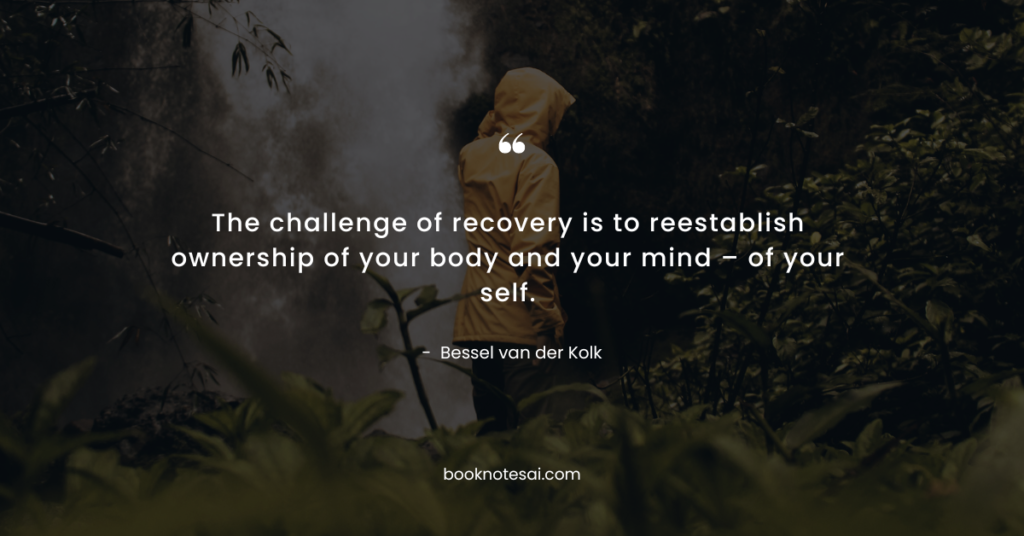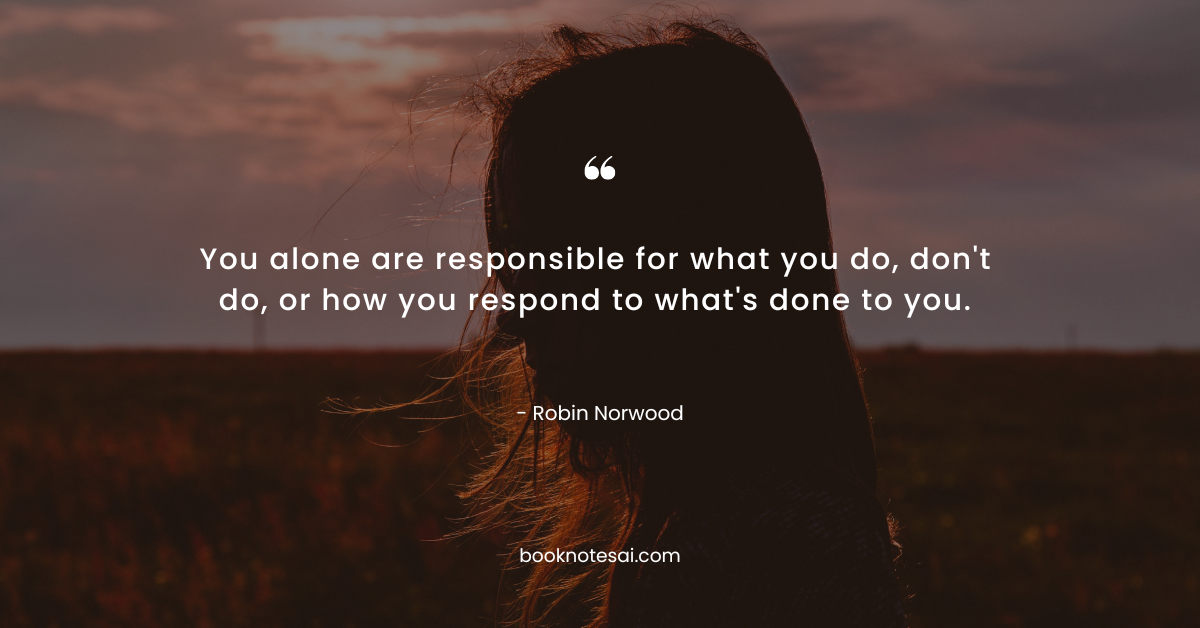Listen To This Post
The Body Keeps the Score Summary: Brain, Mind, and Body in the Healing of Trauma.
A pioneering researcher transforms our understanding of trauma and offers a bold new paradigm for healing in this New York Times bestseller.

This is a book summary for The Body Keeps the Score by Bessel van der Kolk. The essential information is structured to be straightforward, useful, and valuable, all while helping you save plenty of time.
Introduction: Why this book?
- In The Body Keeps the Score by Bessel van der Kolk, you’ll discover a groundbreaking exploration of trauma’s profound impact on the body and mind.
- Investing time in understanding this book’s concepts can empower you with insights into trauma’s pervasive effects and unveil pathways towards healing.
The Body Keeps the Score Summary:
- The Body Keeps the Score by Bessel van der Kolk delves into the intricate connections between trauma and the human body, offering a comprehensive examination of how trauma manifests physically, emotionally, and psychologically.
- Van der Kolk elucidates various therapeutic approaches and innovative treatments that underscore the significance of addressing trauma holistically, emphasizing the integration of mind, body, and spirit for healing.
- The book underscores the importance of acknowledging the individuality of trauma experiences and advocates for personalized treatment modalities tailored to each person’s unique journey towards recovery.
- Through compelling case studies and scientific research, van der Kolk illustrates the resilience of the human spirit and the transformative power of therapeutic interventions in reclaiming one’s sense of self and restoring emotional equilibrium.
- Ultimately, The Body Keeps the Score illuminates a hopeful path forward, emphasizing the capacity for healing and the profound resilience inherent within every individual.
💡 5 Big Ideas
- Understanding Trauma’s Physiological Impact:
Van der Kolk elucidates how trauma disrupts brain function and neurobiological processes, shaping individuals’ responses to stress and adversity.
This insight underscores the importance of integrating body-oriented therapies to address trauma’s somatic manifestations effectively. - Embracing Mind-Body Integration:
The book advocates for holistic treatment approaches that honor the interconnectedness of mind, body, and spirit in healing trauma.
By fostering awareness of bodily sensations and promoting mindfulness practices, individuals can cultivate resilience and reclaim agency over their healing journey. - Unveiling the Power of Embodied Therapies:
Van der Kolk explores the efficacy of somatic experiencing, yoga, and other body-centered modalities in facilitating trauma recovery.
These approaches emphasize the importance of restoring physiological equilibrium and fostering self-regulation to alleviate trauma-related symptoms. - Cultivating Compassionate Self-Awareness:
The book emphasizes the transformative potential of self-compassion and self-awareness in navigating the complexities of trauma recovery.
By cultivating mindfulness and embracing non-judgmental self-reflection, individuals can foster greater resilience and foster a sense of wholeness. - Fostering Connection and Community:
Van der Kolk highlights the significance of supportive relationships and communal healing spaces in facilitating trauma recovery.
By fostering connections built on empathy, trust, and mutual understanding, individuals can cultivate a sense of belonging and resilience in the face of adversity.
In summary, The Body Keeps the Score underscores the intrinsic interconnectedness of mind, body, and spirit in trauma recovery, offering a road-map for cultivating resilience, reclaiming agency, and restoring wholeness in the aftermath of trauma.
Powerful Quotes
- “Trauma is not just an event that took place sometime in the past; it is also the imprint left by that experience on the mind, brain, and body.”
This quote emphasizes the enduring impact of trauma on individuals’ physiological and psychological well-being. - “The challenge of recovery is to reestablish ownership of your body and your mind – of your self.”
This quote underscores the journey towards reclaiming autonomy and restoring a sense of agency in the aftermath of trauma. - “The body keeps the score: if the memory of trauma is encoded in the viscera, in heartbreaking and gut-wrenching emotions, in autoimmune disorders and skeletal/muscular problems, and if mind/brain/visceral communication is the royal road to emotion regulation, this demands a radical shift in our therapeutic assumptions.”
This quote highlights the profound interplay between trauma, the body, and emotional regulation, urging a paradigm shift in therapeutic approaches. - “Being able to feel safe with other people is probably the single most important aspect of mental health; safe connections are fundamental to meaningful and satisfying lives.”
This quote underscores the transformative power of secure attachments and empathic connections in fostering emotional well-being. - “In order to change, people need to become aware of their sensations and the way that their bodies interact with the world around them. Physical self-awareness is the first step in releasing the tyranny of the past.”
This quote emphasizes the foundational role of bodily awareness in initiating the process of healing and transformation. - “The greatest sources of our suffering are the lies we tell ourselves.”
This quote underscores the significance of self-awareness and authenticity in navigating the complexities of trauma recovery. - “Just as the body bears the imprint of our personal history, so, too, does the family system.”
This quote elucidates the intergenerational transmission of trauma within familial systems, highlighting the importance of understanding familial dynamics in the context of healing. - “Our capacity to destroy one another is matched by our capacity to heal one another.”
This quote encapsulates the inherent duality of human nature, emphasizing the transformative potential of compassion and empathy in fostering collective healing. - “The body remembers, the bones remember, the joints remember, even the little finger remembers. Memory is lodged in pictures and feelings in the cells themselves.”
This quote poignantly illustrates the somatic imprint of trauma, underscoring the embodied nature of memory and emotional experience. - “To be able to feel joy, you have to have shared some joy.”
This quote highlights the intrinsic connection between joy and shared human experiences, emphasizing the significance of interpersonal connections in fostering emotional well-being.
One Reason To Read This Book:
You should read The Body Keeps the Score by Bessel van der Kolk to gain profound insights into trauma’s intricate interplay with the body and mind, empowering you with transformative strategies for healing and resilience.
Who should I recommend The Body Keeps the Score summary to?
If you are interested in psychology, neuroscience, or holistic approaches to healing trauma, The Body Keeps the Score summary is invaluable.
The professionals in mental health fields, survivors of trauma, and anyone seeking a deeper understanding of the mind-body connection would benefit greatly from its insights.
Recommendations:
- “The Deepest Well: Healing the Long-Term Effects of Childhood Adversity” by Nadine Burke Harris
- “Waking the Tiger: Healing Trauma” by Peter A. Levine
- “The Body Remembers: The Psychophysiology of Trauma and Trauma Treatment” by Babette Rothschild
This summary serves as a complimentary guide to the reviewed title The Body Keeps the Score, offering key insights. For a deeper understanding, we encourage you to explore the full book.


